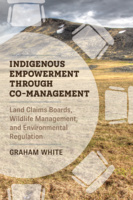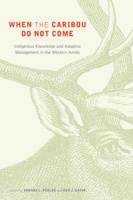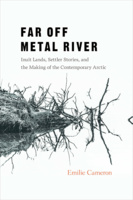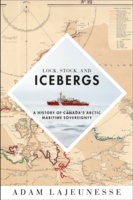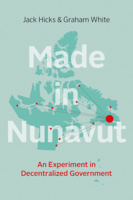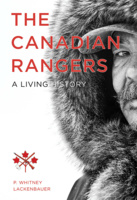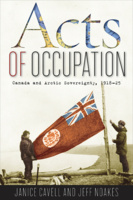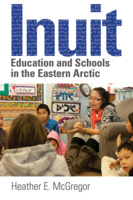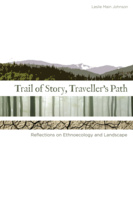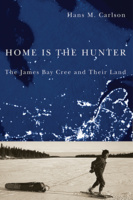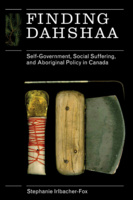A Cold Colonialism
Modern Exploration and the Canadian North
A Cold Colonialism reframes exploration as a modern enterprise – one through which southern Canadians and Americans sought to exert control over northern peoples and their lands.
Nested Federalism and Inuit Governance in the Canadian Arctic
Nested Federalism and Inuit Governance in the Canadian Arctic explores how three northern regions are reformulating the relationship between Indigenous peoples and the state, and transforming Canadian federalism in the process.
Indigenous Empowerment through Co-management
Land Claims Boards, Wildlife Management, and Environmental Regulation
This book is a clear, compelling, and evidence-based assessment of the effectiveness of co-management boards in providing Indigenous peoples with genuine influence over land and wildlife decisions affecting their traditional territories.
Birds of Nunavut
The first complete survey of the birds of Nunavut, this fully illustrated reference work identifies and documents the distribution, ecology, behaviour, and conservation of the species that live in and migrate through the territory.
When the Caribou Do Not Come
Indigenous Knowledge and Adaptive Management in the Western Arctic
When the Caribou Do Not Come highlights the knowledge and perspectives of northern Canadian communities that have been dealing with caribou population fluctuations for generations.
Far Off Metal River
Inuit Lands, Settler Stories, and the Making of the Contemporary Arctic
Drawing on the story of the 1771 Bloody Falls massacre, human geographer Emilie Cameron explores the relationship between stories and colonialism, challenging readers to examine their perceptions of the contemporary Arctic and its peoples.
Lock, Stock, and Icebergs
A History of Canada’s Arctic Maritime Sovereignty
Lock, Stock, and Icebergs recounts the events, pressures, and behind-the-scenes negotiations that shaped Canada’s legal claim to the Northwest Passage and the waters of the Arctic Archipelago.
Made in Nunavut
An Experiment in Decentralized Government
Made in Nunavut provides a definitive account of how an innovative government was designed and implemented in Canada’s Eastern and Central Artic.
The Canadian Rangers
A Living History
A lavishly illustrated history of the Canadian Rangers and their evolving role as defenders and stewards of Canada’s remote regions.
Acts of Occupation
Canada and Arctic Sovereignty, 1918-25
This fascinating tale of the rivalries and intrigues that played out as Canada secured the Arctic illuminates an under-explored era in Canadian foreign policy.
Inuit Education and Schools in the Eastern Arctic
The first history of educational policy, practice, and decision making in the Eastern Arctic, now Nunavut.
Trail of Story, Travellers’ Path
Reflections on Ethnoecology and Landscape
A sensitive examination of meanings of landscape, this book draws on the author’s rich experience with diverse environments and peoples in western Canada.
The Industrial Transformation of Subarctic Canada
A revealing history of human impact in the Canadian North, this book focuses on the causes and consequences of the industries that replaced the fur trade.
Home Is the Hunter
The James Bay Cree and Their Land
The James Bay Cree lived in relative isolation until 1970, when Northern Quebec was swept up in the political and cultural changes of the Quiet Revolution. Home Is the Hunter presents the historical, environmental, and cultural context from which this recent story grows.
Finding Dahshaa
Self-Government, Social Suffering, and Aboriginal Policy in Canada
Based on case studies of three self-government negotiations in the Northwest Territories, Finding Dahshaa is the first ethnographic study of the negotiation of self-government in Canada.



